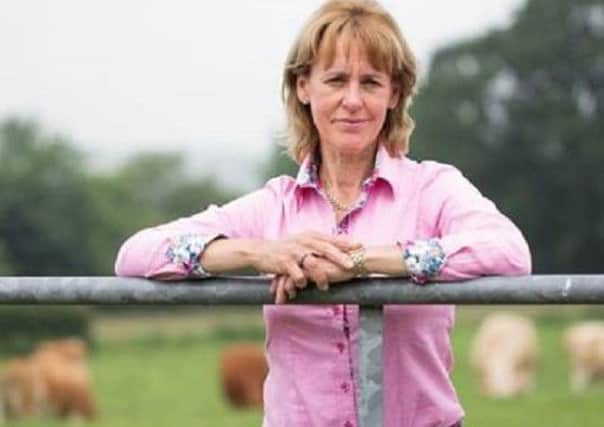NFU sets out the pathway to Net Carbon Zero status


In a new report, published earlier this week, the union sets out three pillars that will help the industry reach the aforementioned goal.
These are: improving farming’s productive efficiency; improving land management and changing land use to capture more carbon while, at the same time, boosting renewable energy and the wider bio-economy.
Advertisement
Hide AdAdvertisement
Hide AdThe first of these relates to the reduction of emissions from agriculture, using a wide variety of techniques to enhance productivity and deliver the same output or more from every farm, working smarter to use fewer inputs.
The second is about increasing farming’s ability to capture more carbon though bigger hedgerows, more trees and woodland, enhancing soil organic matter and conserving existing carbon stores in grassland and pasture.
The third theme involves displacing greenhouse gas (GHG) emissions from fossil fuels and removing carbon dioxide from the atmosphere through bioenergy and bio-based materials like hemp fibre and sheep’s wool.
NFU President Minette Batters said:
“There is no doubt that climate change is one of the biggest challenges of our time and rising rapidly on the political agenda both at home and globally.
Advertisement
Hide AdAdvertisement
Hide Ad“Representing British farming, we recognise our unique position as both a source and a store for greenhouse gas emissions and, importantly, how we can build on our work so far to deliver climate neutral farming in the next 20 years.
“We aspire to be producing the most climate friendly food in the world. The carbon footprint of British red meat is only 40 per cent of the world average. And we can go further, whether that is through improving our productivity, using our own land to take up and store carbon, planting hedgerows and trees to capture even more, and boosting our renewable energy output.
“We know that there is no single answer to the climate change challenge facing us all.”
Batters continued: “That is why we must work across a range of internationally recognised inventories and utilise the best available science, working in partnership with concerted support from government, stakeholders and the wider supply chain.”
Advertisement
Hide AdAdvertisement
Hide AdShe concluded: “I am also very clear that we can deliver on our commitment to net zero while retaining, if not growing, our agricultural capacity. British farmers are proud to produce food to some of the highest standards of animal welfare and environmental protection in the world. We must avoid anything that undermines UK food production, and merely exports our greenhouse gas emissions to other parts of the world.”
Responding to the content of the NFU report, Friends of the Earth campaigner Guy Shrubsole said: “Eating less but better meat is a crucial part of the fight against climate breakdown, yet astonishingly there is no mention of this in the NFU’s report. Doing so would free up much more land for trees and agroforestry, which would absorb huge quantities of carbon from the atmosphere. But it seems the NFU is still not prepared to contemplate significant land use change in Britain, despite the Committee on Climate Change recommending this as being vital. “Intensive agriculture is a major factor in the decline of nature, and a big source of climate-wrecking emissions. The NFU has an opportunity to embrace a new approach to managing the land that benefits both farmers and the planet.
“This is something progressive farmers in the UK are starting to pioneer but this report unfortunately falls short.”